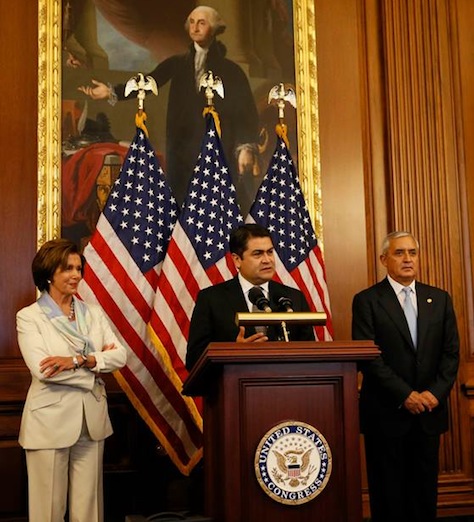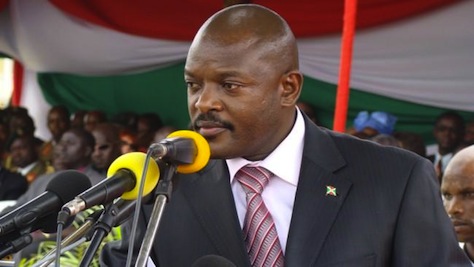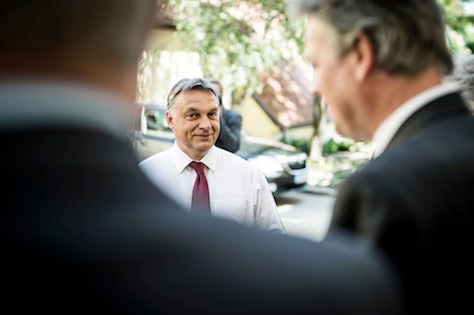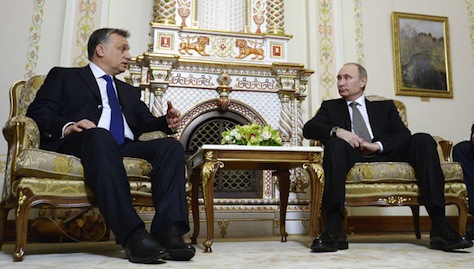When you talk to Hondurans on the streets of San Pedro Sula, they’ll tell you they are more afraid of the police than of drug traffickers or gang members.![]()
![]()
In a county where drug traffickers offer far higher payoffs than the salaries constrained by stretched national and local budgets, today’s hero is tomorrow’s villain, and the line between good guys and bad guys has become impossible to draw. Corruption runs high and impunity runs even higher in a country where the judicial system is incapable of prosecuting a shockingly high number of violent incidents.
Yet when Honduras’s new president Juan Orlando Hernández (pictured above at the US Capitol) came to the United States last week to meet with US president Barack Obama, he pointed fingers at US policymakers for the sudden wave of child migrants from Central America to the US border seeking asylum — 57,000 this year and counting, more than 25,000 alone from Honduras.
With nearly 8.5 million people, Honduras is the second-most populous country in Central America (after Guatemala with 14.4 million) and in the current crisis, many more child migrants have arrived at the US border from Honduras than from either Guatemala or El Salvador. For example, more children have arrived from San Pedro Sula, Honduras’s northern industrial hub than from all of Guatemala. Though Tegucigalpa, the Honduran capital, isn’t exactly the world’s safest city, it’s a tranquil oasis compared to San Pedro Sula and the northern coast, which is plagued with the worst of the drug-related violence that has given Honduras the world’s highest murder rate — 79.7 homicides per 100,000, amounting to around 18.5 homicides a day.
That’s one reason why the Obama administration is allegedly considering the unusual step of allowing refugees to seek asylum directly within Honduras, modeled after former programs developed for war-torn Vietnam and ravaged Haiti, a tacit acknowledgment that the human rights situation has reached dire levels.
* * * * *
RELATED: Unaccompanied minors? Blame a century of US Central American policy.
* * * * *
When Hernández came to the United States last week, he was quick to blame coyotes for turning their predatory sights to Central America, and he was quick to blame the US immigration reform debate for creating ‘ambiguity’ about US policy. But above all, Hernández noted that US demand for illegal drugs fuels the trafficking that so afflicts Honduras today: Continue reading Hernández selectively blames US for child migrant crisis



